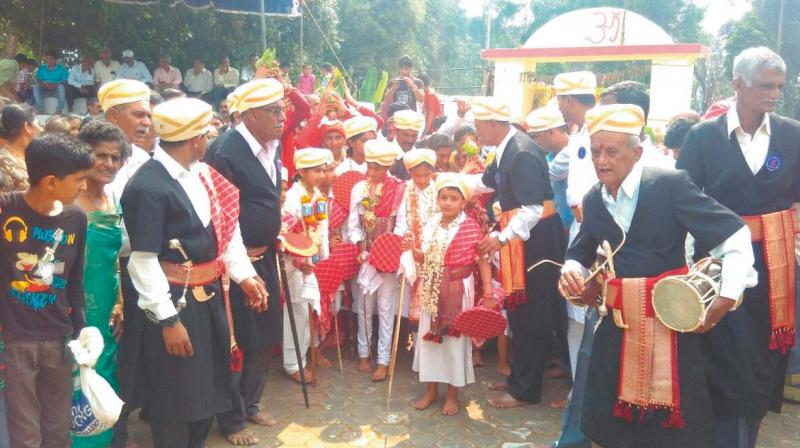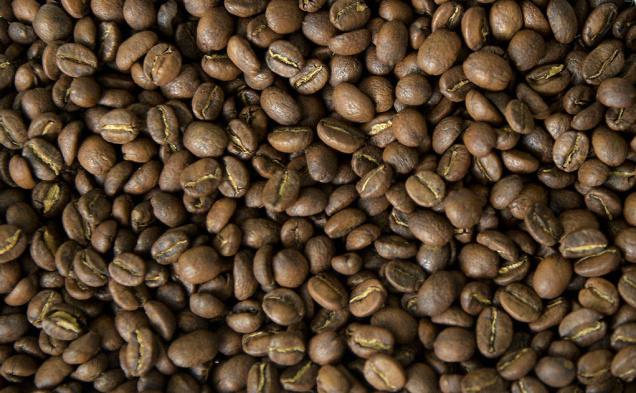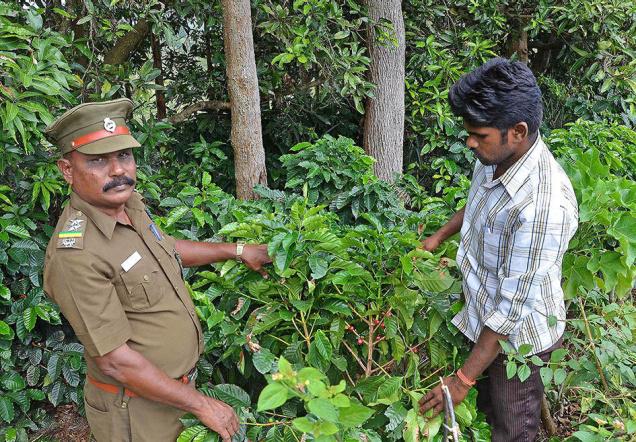When things around you are falling apart, there are only a few who not only rise to the occasion, but also create opportunities for themselves and others. Having been able to support the tribals, rural folk, and small farmers with her brand Nectar Fresh, Chayaa Nanjappa is one such example.
Chayaa’s single-minded efforts have established her honey brand – Nectar Fresh – in a highly quality-conscious premium segment. While serving high-end hotels and resorts, she (her brand) has created employment and better earning opportunities for tribals and marginal farmers. In fact, she has come a long way since the launch of the brand in 2007, and now she receives orders from importers from different parts of the world who want to buy honey from her company. She is also hopeful that Nectar Fresh products will soon be decked up at Walmart stores.
The honey market is a crowded space with big brands at play, so what made a small Khadi & Village Industries Board-backed rural enterprise from Mandya (in Karnataka) to earn a name for itself in both domestic and international markets? According to her, it is their obsession for quality that has made the brand stand out. The global exports of natural honey is about $2.3 billion (CY2014), of which India’s share is just $77 million, which is a minuscule 3.5%. Nanjappa saw the potential for growth. When she started in 2007, total honey production by her company was just 20 tonne per month. That has now increased to 200 tonne per month. And the company has plans to further increase the production to 400 tonne per month in the near months.
Earlier, she would export through agents, but presently, the company has started exporting under its own brand name. That most of her new orders are accounted for by referrals from existing, happy clients is a sign of her company’s product quality.
In the domestic market too the company has positioned itself strategically at few select outlets like Himalaya Drugs and Kerala Ayurveda, and serves brands like Kitchens of India, etc., to stay away from the clutter.
Though the company has expanded its product portfolio with jams, sauces, and coffee, honey still remains the mainstay. Her efforts in the field of rural empowerment and giving tribals and marginal farmers opportunities to sell their produce in the global market has earned her many state and national-level accolades, including the Priyadarshini Award by Federation of Indian Women Entrepreneurs (FIWE). She proudly says that Nectar Fresh has become the first brand in India to use women-owned logo of WEConnect International, a US-based women entrepreneurs’ body which supports brands that stand for quality. Chayaa is a social capitalist who deserves much praise.
TDB: What was life like before you started Nectar Fresh, and what made you take up entrepreneurship as a profession?
Chayaa Nanjappa (CN): I started this business at a point in time when I was going through a tough phase in my life due to personal reasons. I got into the business because I wanted to do something to keep myself busy and be independent, and create employment to help other needy people. And that’s how Nectar Fresh Foods came into existence. Initially, I started it as a small scale unit in Bangalore, but later, I moved to Mysore.
TDB: How did you manage the initial funding? Why honey and food products only?
CN: As my place of origin is Coorg, I looked at products which can be related to the region. Long ago, Coorg was known for its honey but, gradually, the honey production fell to shockingly low levels. So, I decided to source best quality honey from different parts of the country and market it under the brand name Nectar Fresh in small quantities. I underwent a week-long training on honey production at the Central Bee Research and Training Institute in Pune and learnt technicalities involved in the production and storage of honey.
I had lost my father and had no one to look up to for guidance. I took some financial help from my mother. I prepared a project report based on which I got a loan of Rs.10 lakh from a bank. I also got a lot of support from the Khadi and Village Industries Board.
TDB: Having started with just a corpus of Rs.10 lakh is very interesting and inspiring. What was your initial approach?
CN: I market my products on my own across India; I have no budget for advertisements. My approach was to do something new and give a unique positioning to my product. There was a monopoly of honey brands from Germany and France in the high-end segment of the hospitality industry in India. No Indian brand was catering to the segment that includes high-end hotels and resorts. I maintained product quality from the very beginning. Quality and world-class packaging helped us to break the monopoly of foreign brands. To counter MNCs, we expanded our product line, and now supply an entire basket of products including honey, jam, sauce and coffee.
TDB: Tell us something about your export markets. And how exactly did you foray into them?
CN: Until recently, we were exporting through agents but are now exporting directly across the globe. We are enhancing production capacity of honey from 200 tonne per month to 400 tonne per month to meet demand from export markets. We also have plans to produce 50 tonne of jam per month. Well, ITC was the first organisation that recognised us for our quality, and thus, I got my first order from them. The association with ITC gave me the confidence to approach other premium hotels. My export orders started coming when people started noticing our products in some of the premium hotels in India. The positioning of our products in these hotels helped in image building. Two months ago, we started exporting directly under our brand name.
TDB: You have ventured into a highly competitive segment, both in the domestic as well as overseas markets. How do you deal with competition?
CN: Our products stand for quality, and it’s an integral part of our brand. Nectar Fresh has grown due to our ethics in business. Because of positive word of mouth, farmers have remained loyal to us, and for the last five to six years we have held on to the same group of suppliers. We source directly from farmers and with the growth of the company, farmers have also benefitted. We may be a small-scale unit, but from the batch code, we can trace a product from the level of procurement to final despatch. That’s how we maintain consistency in quality in the entire process. It’s because of the quality of our products that even people from US and Germany come to our small unit and buy from us.
TDB: What role has your family played in your success? Were there initial apprehensions?
CN: As I have already mentioned, I started my business when I was going through a rough phase in life, and due to that my mother had her apprehensions. But still, she encouraged me. My close friends supported me a lot too. Rajappa, my business partner, has been a big, big, big support.
TDB: What would be your advice to all, especially women, who want to take a plunge into entrepreneurship in general, and exports and imports in particular?
CN: Work hard. If you are really focused, you can achieve the impossible. My new unit in Mandya in Karnataka is a 100% rural enterprise, but I haven’t availed any subsidy for it. The system is such that it will take its own time. Instead of wasting time and energy on it, if you focus it on your work, you will get better results. My past experience made me realise this, and this time I applied for a loan from a bank and set up my unit without taking any subsidy. There are many opportunities for those living in urban areas, but the necessities of rural women need to be addressed. They can make a big difference to exports. They have world class products around them, but they don’t know how to take them to market.
source: http://www.thedollarbusiness.com / The Dollar Business / Home> Cover Story> March 2016> Power Woman> O Success, So Sweet / by Sisir Pradhan / March 20th, 2016







